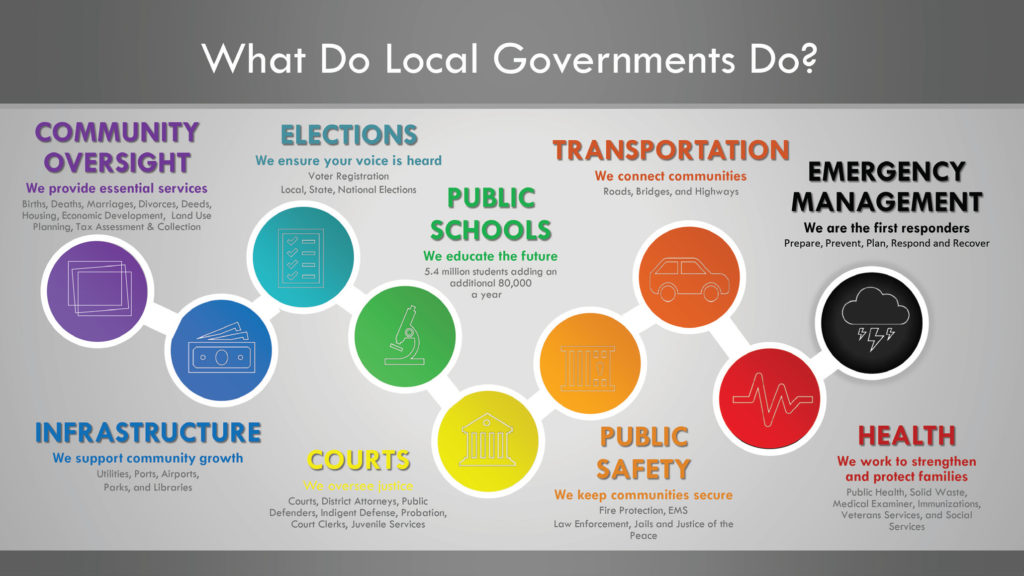By Julie Anderson
Editor
It is the Heartbeat of County Government.
It represents your Commitment to the Texas Constitution and your Care and Concern for those who live in your county.
It represents Public Safety, Transportation, and Health Care. Libraries, Senior Centers and Youth Programs. Safe Roads, Emergency Response, and Indigent Care.
“The county budget is the heart and soul of what you do,” shared former Ector County Judge Susan Redford, judicial program manager for the Texas Association of Counties. Redford opened the 89th Annual West Texas County Judges and Commissioners Association Conference early bird program, which offered an overview of county budgeting along with classes on setting the tax rate, economic development for counties, and the importance of demonstrating the public benefit of county expenditures.
Some 275 County Judges and County Commissioners convened in Collin County for the four-day meeting April 24-27, where the Association conducted important business including the passage of resolutions and election of officers, and earned statutorily required education hours.
Topics covered a wide spectrum of key issues affecting grassroots government including financial accounting, the opioid epidemic, mental health issues in courts, road drainage, interlocal agreements, bonds and certificates of obligations, and lawmaking.
Both the opening and closing sessions of the conference addressed the county budget, with the first grouping of classes focused on budget development, and the final session centered on local decision-making and the property tax, the primary funding source for Texas counties.
Calendar, Economy and Communication
As County Judge, the most helpful tool in effective budgeting was a detailed budget calendar, Redford shared. In fact, the calendar was so important that when Redford was Judge, the Ector County Commissioners Court officially voted to accept the calendar.
This ensured everyone was on the same page with regard to meetings, deadlines, and statutory requirements, she elaborated.
The statutes governing the budget process are lengthy and specific; while there aren’t many statutes that address economic development for counties, there is an important one.
Small rural counties or those struggling with explosive growth due to the energy industry sometimes feel like their hands are tied when it comes to supporting and developing their local economy, noted Charles R. Kimbrough, attorney with Bickerstaff Heath Delgado Acosta LLP.
A county may use Chapter 381 of the Texas Local Government Code, Section 381.004, to stimulate business and commercial activity for several purposes including state or local economic development; small or disadvantaged business development; support of comprehensive literacy programs for the benefit of county residents; and encouragement, promotion, improvement and application of the arts (see the statute for the full listing).
Key questions to ask before exercising a county’s authority with regard to economic development are:
- What public policy goals (or public purposes) exist to justify the program and agreement?
- What will ensure those goals are accomplished or substantially achieved?
It’s important to share these goals with taxpayers as you “tell your story,” declared Dr. Peter McGuill, director of the V.G. Young Institute of County Government, Texas A&M AgriLife Extension Service. “You are in the people game.”
When it comes to crafting a message to share with constituents, McGuill urged officials to take the time to write the message on paper, set it aside for a bit, and then read it again and make necessary changes before presenting to the public. It’s important for the taxpayers to understand the public benefit of county expenditures, McGuill emphasized.
Local Decision-Making and the Property Tax
Telling the county story was also the focus of the closing general session, as Tarrant County Judge Glen Whitley encouraged Commissioners Court members to stand up and speak out.
“Don’t sell yourselves short,” Whitley exclaimed. “You are an elected official! Don’t think people won’t listen to you.”
Whitley and Jim Allison, general counsel of the County Judges and Commissioners Association of Texas (CJCAT), said now more than ever “it is time for us to put out valid information and tell the true story.” While the 86th Legislature is still six months away, revenue caps are already being proposed at the state level.
Allison introduced a PowerPoint presentation developed as an educational tool by the Texas Conference of Urban Counties, CJCAT, Texas Association of Counties, Texas Association of School Boards, and Texas Municipal League.
The detailed yet easy-to-understand slides are available to officials to “put on your county website or do whatever you can to get this information out to explain why we need to maintain local decision-making as the foundation of our government.”
Using illustrations and charts, the presentation explains how county government is funded; how public schools are funded and the resulting impact on the property tax rate; unfunded mandates; and how local decision-making is the best way to address the myriad of challenges in Texas, where one size does not fit all.















